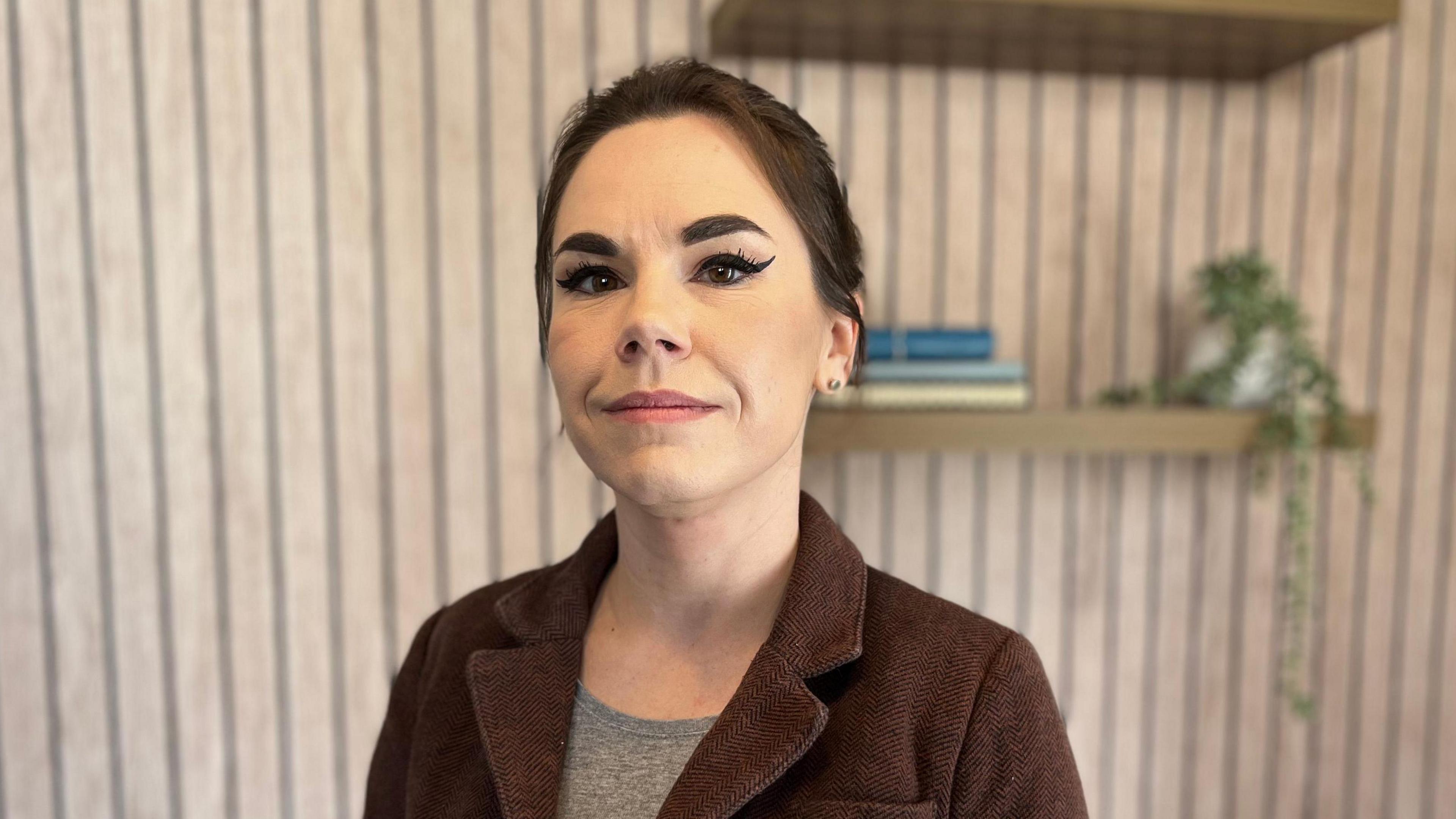Two-bed housing guidelines a concern - architect

Emma Carter said the States Strategic Housing Indicator did not match islanders' needs
- Published
An architect who looks at building homes in Guernsey has said States advice to build a "substantial" majority of two-bedroom homes is a cause for concern.
Emma Carter, chartered architect from Arch+, said the guidance that more than 700 such properties be built, compared to more than 50 three-bedroom homes, was causing the price of larger houses to increase.
Families have told the BBC that the lack of affordable housing had left them to decide between only having one child or leaving the island.
A senior politician said the Strategic Housing Indicator was "not a target" but "an indicator that helps us understand the extent to which Guernsey’s housing need is being met".
'Sits slightly uncomfortably'
Ms Carter said homes with two bedrooms were not suitable for families who wished to have a boy and a girl, or more than two children, or for people who worked from home.
She said: "Whilst I can absolutely do development sites where we're looking at two beds, it sits slightly uncomfortably with me because I know that I would much rather see more three-bed properties around for families.
"In addition, my slight concern is that, by having such a large number of two-bed houses, it's going to make the demand for three and four-bed houses greater, and therefore the prices for those are going to go up."
'Great in theory'
The States Strategic Housing Index sets guidelines for the types of houses which should be built between 2023 and 2027.
Ms Carter acknowledged that it was "not a rulebook, but it is very much looked at in terms of how developments can be approved and rationalised with other developments in the island".
Another principle behind the index is that older people would have the opportunity to downsize to two-bedroom properties.
But Ms Carter said the style of homes being planned was not suitable for elderly people.
She said: "This is great, in theory - the reality of this is that there aren't that many suitable two-bed properties, maybe on one level, that people may want to downsize to.
"I think there needs to be consideration in terms of the style of house, as well as the number of bedrooms.
"These people have these larger houses and they may wish to vacate them, but where are they going to downsize to?"
'Sad state of affairs'
Families who need more than one bedroom now or in the future have told the BBC they are feeling effects of the lack of affordable homes.
Emma da Cova said she and her partner, currently in a one-bedroom flat, had decided to only have one child due to the housing costs.
She said: "It's just too expensive to buy anything... We're just not going to be able to afford to have enough bedrooms for more."
Nicola Gibbons has one child but has decided to convert her two-bedroom property into a three-bed if she decides to grow her family.
She said: "It means we have to spend money now to create an extra bedroom when, ideally, it would have been good to buy a three-bedroom house in that bracket to start with."
Alan Northmore has five children and has been able to afford a house with several bedrooms, but said he believed his children might not have the same opportunity.
He said: "I don't know how my children will afford houses. My older children will be going to university shortly and I wonder whether they'll come back actually, to be honest."
Paula Bichard is a grandmother who has moved into her late parents' home so that her daughter and grandchildren can have her larger home.
"It's a sad state of affairs when our youngsters are having to leave the island because they can't afford to live here," she said.
Lindsay de Sausmarez, president of the Committee for the Environment & Infrastructure said the indicator did not "prevent any developer from building certain types of housing or dictate what property sizes must be developed".
But she added there was a "lack" of two-bed homes.
She said more would help to address problems for people "looking to rent or buy their first home, or they’re a second-stage mover, or whether they’re retired and hoping to downsize into something more manageable".